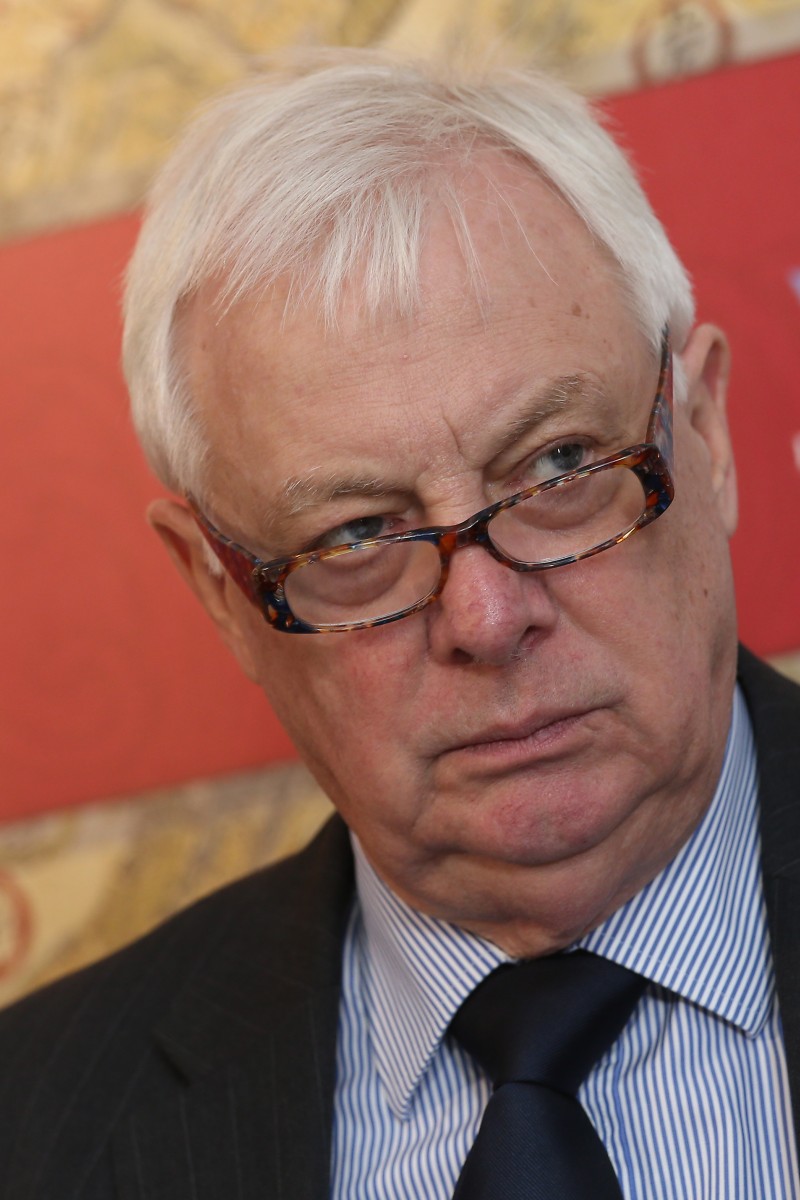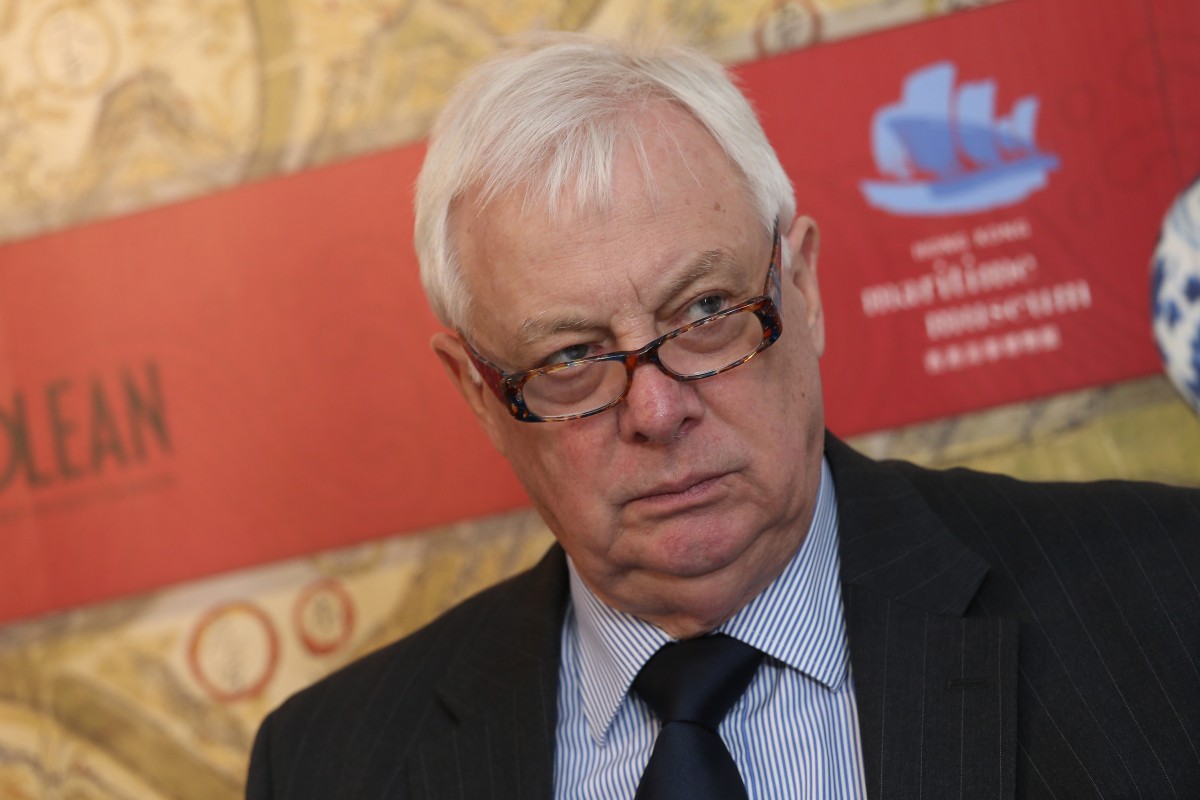
Chris Patten, who ran Hong Kong before it was handed back to Beijing in 1997, told a panel of British lawmakers yesterday that he believes China is "in breach of" Hong Kong’s Basic Law, its de-facto constitution, in its attempts to restrict democracy, and that it is Britain's business
 Chris Patten, former Hong Kong Governor, says Hong Kong lacks leadership
Chris Patten, former Hong Kong Governor, says Hong Kong lacks leadershipThe last British governor of Hong Kong called on the city's government to offer concessions to pro-democracy protesters, saying there's "an extraordinary lack of leadership" from officials.
Chris Patten, who ran the territory before it was handed back to Beijing in 1997, told a panel of British lawmakers yesterday that he believes China is "in breach of" Hong Kong’s Basic Law, its de-facto constitution, in its attempts to restrict democracy.
"There are things that the chief executive and government could do in a statesmanlike way to persuade the protesters to get into a state of negotiations," Patten said in testimony to the House of Commons Foreign Affairs Committee in London. "To get the protesters to climb down, the government should be offering them more than they are."
Demonstrators took to the streets of Hong Kong September 26 following Beijing's decision in August that candidates to become the city’s chief executive in 2017 must be vetted by a nominating committee. The movement's leaders have suggested Hong Kong's pro-democracy lawmakers all resign, triggering by-elections and a de-facto referendum on electoral reform. Hong Kong’s Basic Law doesn't make any provision for public referendums.
Article 45
"I think there’s certainly more than a colourable case that they're in breach of Article 45 of the Basic Law in the proposals they've put forward for the election of a chief executive," Patten told the committee. Article 45 specifies how the chief executive should be selected, with a goal that it should be by "universal suffrage upon nomination by a broadly representative nominating committee."
"One thing you can't say is that election committee is broadly representative," Patten said, citing the fact that Hong Kong’s election committee has only ever had 7.5 per cent representation by pro-democrats, which doesn't reflect their popular support. In seats of the governing legislature chosen through direct election in 2012, pro-democracy parties received about 56 per cent of the vote to 44 per cent for pro-Beijing parties.
Patten said that as time passed, it was getting harder for the demonstrators to back down. "What's happening in Hong Kong is an extraordinary lack of leadership," he said.
Apec meeting
Patten said he was relieved that Hong Kong's police had stopped using tear gas and pepper spray on demonstrators and that he hoped that this would continue after the summit in Beijing next week of the Asia Pacific Economic Cooperation.
"This is going be be decided by politics," he said, speculating that Beijing had ordered and end to the violence that marked the early stages of the protests. "I hope the no violence, no blood-on-the streets continues after the Apec meeting."
He also rejected the idea that China had shown itself more open to democracy in Hong Kong than Britain had done when it was in charge. "China’s leaders made it absolutely clear that the last thing they wanted was for us to introduce democracy to Hong Kong," he said.
Patten swept aside pro-Beijing suggestions that Hong Kong's affairs were no longer British business. He said that under the 1984 Joint Declaration on the future of the former colony, "the obligations are now from China towards the UK"
Internal affairs
China's ambassador to London, Liu Xiaoming, wrote to the committee earlier this year telling them that issues in Hong Kong were "purely China's internal affairs" and warning that to hold hearings on the subject would "ultimately harm the interests of Britain." He said he would "strongly advise" the committee against a planned visit to Hong Kong.
"I’m not saying they should welcome your interest, but they certainly shouldn't deny that you have an interest in this," Patten told the committee. "What surprises me is that the Foreign Office haven't hauled in the Chinese ambassador and told him that this was the Joint Declaration, not the Chinese Declaration."
He also criticized Britain's policy of public silence on Chin'a human rights issues, saying that it would do nothing to increase trade. Germany sold more than the UK to China, he said, because it made more things the Chinese wanted to buy.